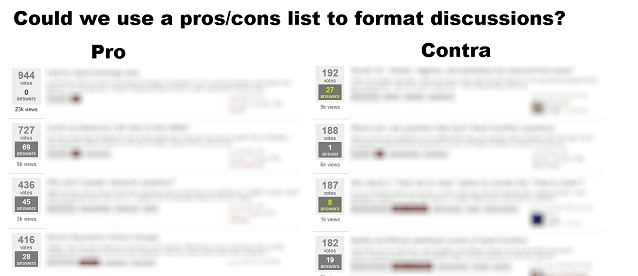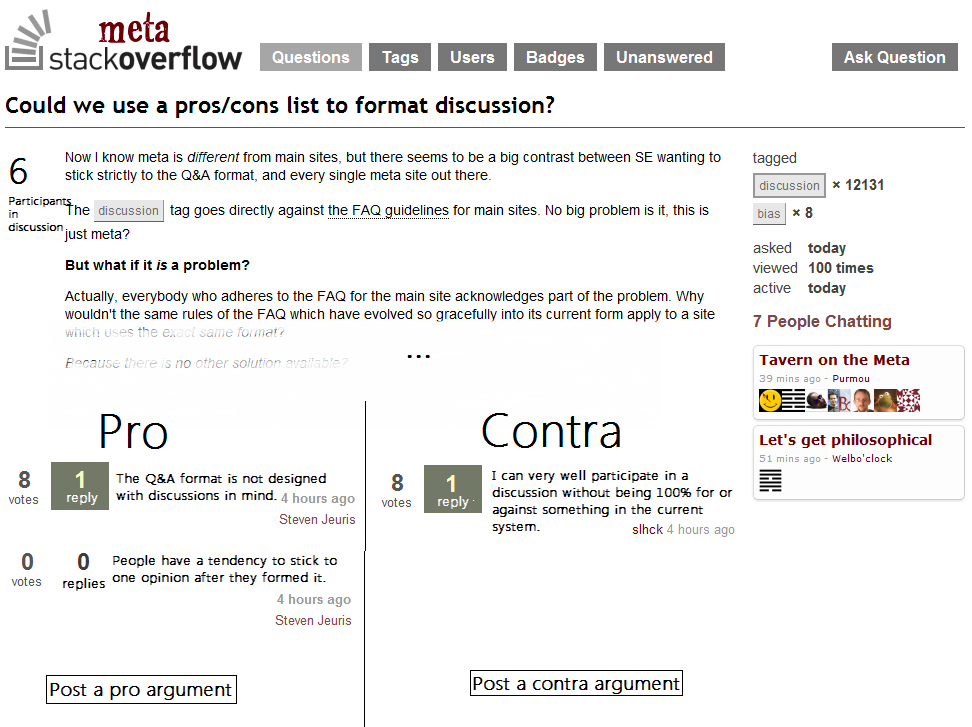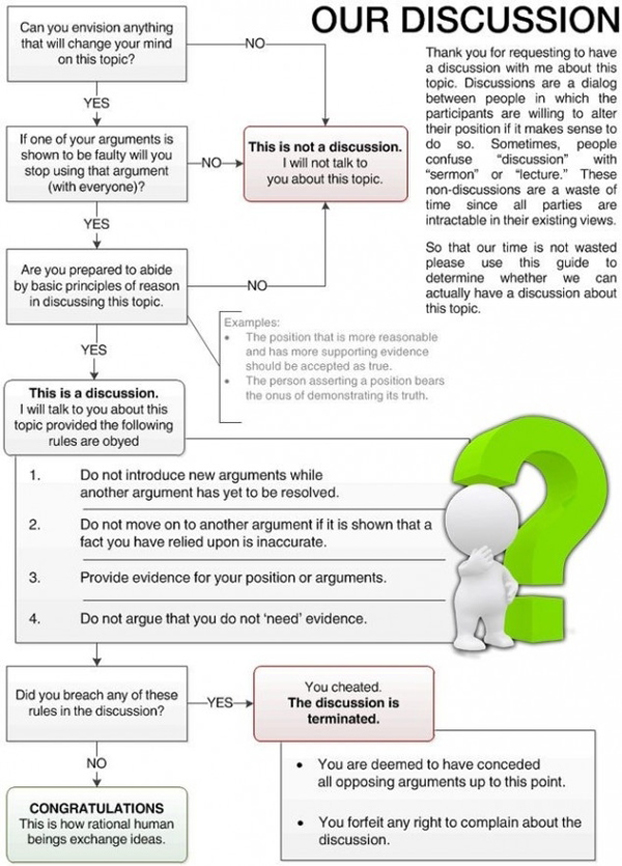Now I know meta is different from main sites, but there seems to be a big contrast between SE wanting to stick strictly to the Q&A format, and every single meta site out there.
The discussion tag goes directly against the FAQ guidelines for main sites. No big problem is it, this is just meta?
But what if it is a problem?
Actually, everybody who adheres to the FAQ for the main site acknowledges part of the problem. Why wouldn't the same rules of the FAQ which have evolved so gracefully into its current form apply to a site which uses the exact same format?
Because there is no other solution available?
What is the problem?
- The Q&A format is not designed with discussions in mind.
- People have a tendency to stick to one opinion after they formed it. "People will dislike certain parts of a proposal, and then become vehemently against the entire thing, instead of trying to participate in resolving the issues they raise."
A possible solution?
Benjamin Franklin described a well-known decision-making process.
To get over this, my Way is, to divide half a Sheet of Paper by a Line into two Columns, writing over the one Pro, and over the other Con. Then during three or four Days Consideration I put down under the different Heads short Hints of the different Motives that at different Times occur to me for or against the Measure. When I have thus got them all together in one View, I endeavour to estimate their respective Weights; and where I find two, one on each side, that seem equal, I strike them both out: If I find a Reason pro equal to some two Reasons con, I strike out the three. If I judge some two Reasons con equal to some three Reasons pro, I strike out the five; and thus proceeding I find at length where the Ballance lies; and if after a Day or two of farther Consideration nothing new that is of Importance occurs on either side, I come to a Determination accordingly.
PROS | CONS
___________
|
|
|
What would that look like on SE?

Each pro or contra argument could follow a similar format as the current Q&A format. However, the question is replaced by an argumentation, which can be rated by others. Each post should contain just one argumentation. Answers make room to address issues with the argumentation, or express opinions about it. You are encouraged to participate in both sides of the discussion. Separate issues are discussed separately.
This website is a good implementation of the concept I'm explaining: http://www.proconlists.com/
My answer to this very question is an example of how I feel this discussion would be much more constructive in a pros/cons form (albeit with better formatting). I incorporated the entire comment thread underneath in a pros/cons format on which could ideally be voted separately.



discussionhas no implicit statement I can agree to?